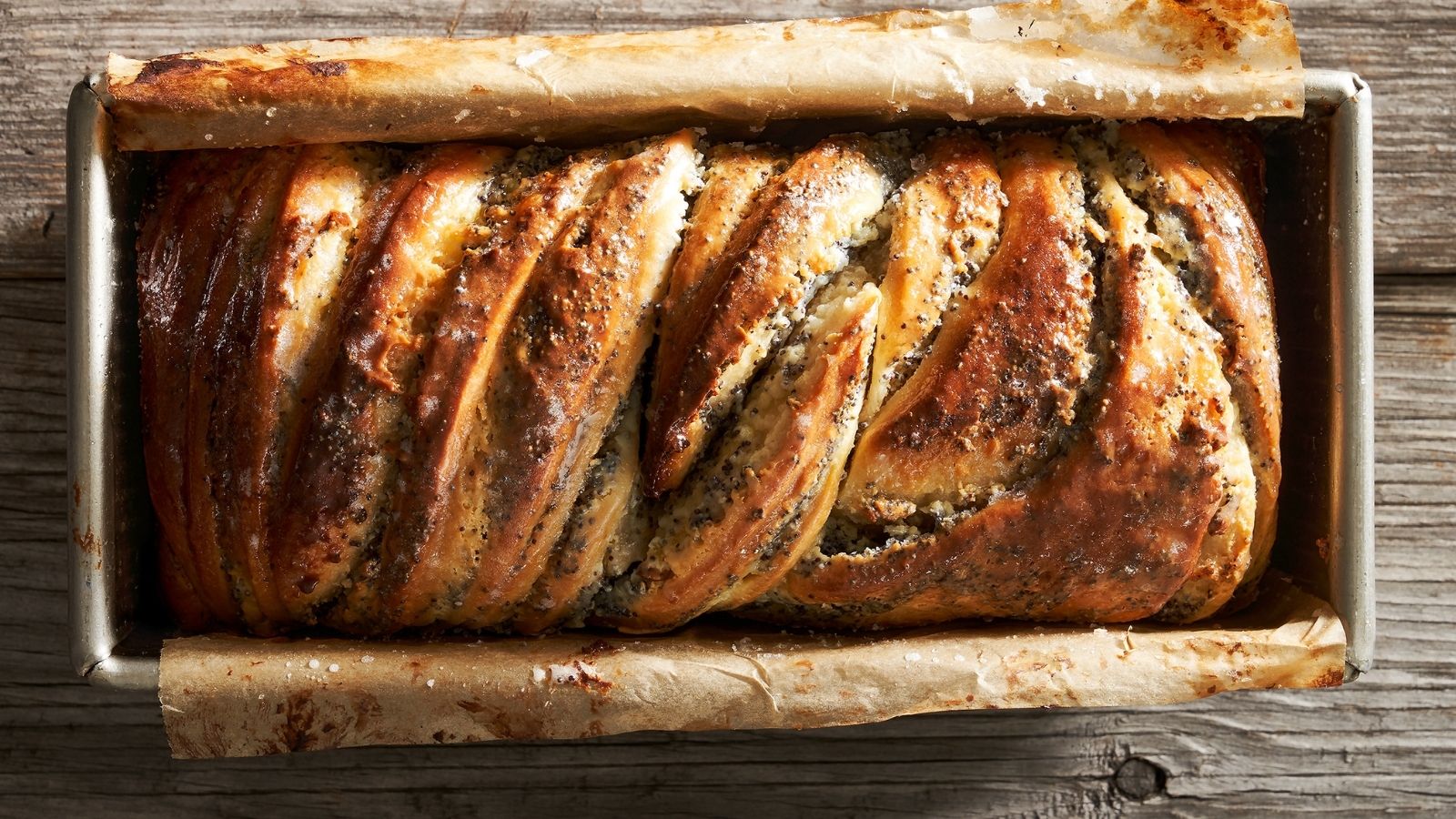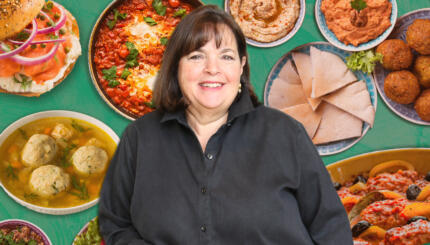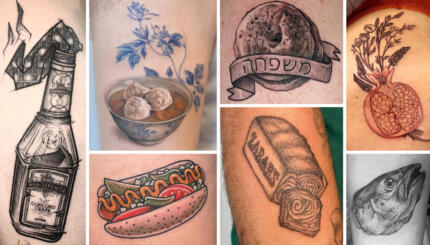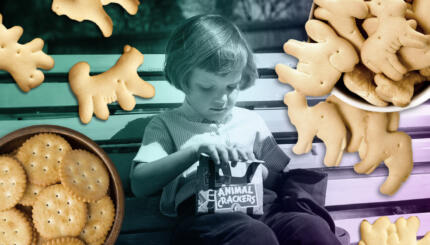There’s something sacred about Judaism and bread. In fact, the yeast you see punctuating the baking aisle at every grocery store in that singular yellow packaging came from Hungarian Jewish immigrants, the Fleischmann’s, who emigrated to the U.S. and forever changed the bread-making industry.
But we’re not here to discuss our obsession with bread. Rather, we’re here for her sweeter sister — the one oozing with dark chocolate or filled with ripples of cinnamon and sugar, shining from a sweet syrup glaze or topped with crumbled streusel dotted with chocolate chips. A yeasted dessert so dense it becomes an entire meal.
Babka has become something of a darling of the baking world, with chefs and bakeries producing clever twists, like fruit or cheese-filled, or those made from laminated croissant dough or whole grain brioche.
Over the phone, Caroline Schiff, pastry chef at Gage & Tollner and author of “The Sweet Side of Sourdough” waxed poetic to me about babka and baking. Baking, for her, brings her closer to her culture. “There’s so much symbolism through food in Judaism,” she says. “I’ve always loved how there are certain foods for each holiday, and these dishes and recipes help tell the story. It’s such an amazing way to connect with the history and traditions.”
The Nosher celebrates the traditions and recipes that have brought Jews together for centuries. Donate today to keep The Nosher's stories and recipes accessible to all.
When Gage & Tollner temporarily shuttered due to the pandemic, Schiff was forced to bring home the restaurant’s sourdough starter and began coming up with creative ways to utilize it in traditional desserts. Thus her cookbook was born. Caring for a starter may seem daunting to a novice, but once it clicks, it becomes second nature, like tending a house plant or feeding a family pet.
Despite my anxiety over keeping a starter alive on top of my house plants and neurotic cat, Schiff assures me that it’s a simple process. If the directions you’ve found don’t make sense, move on and find a method that resonates with you.
Patience is a virtue with sourdough: it can take up to two weeks for a starter to fully mature. “I get in the habit of feeding it at the same time everyday,” says Schiff. “Just like you need coffee first thing or lunch by a certain time — your starter appreciates routine.”
Flipping through her cookbook, I pause at her recipe for lemon-poppy cream cheese babka. Growing up in a household of purists — one that would scoff at a vanilla egg cream or turn their nose up at anything but a plain bagel — I was intrigued by this sweet and tart spin-off, further elevated by the sharp fermented dough.
Schiff agrees with me: “Obviously there’s not much that can beat a chocolate babka, but the lemon poppy cream cheese filling I made for the one in the book is so special.”
The sourdough adds depth and complexity missing from traditional babka. “It’s tangy and has the real flavor of wild yeast,” she says. The element of sustainability is another boon for Schiff, who saw firsthand that caring for this living organism and finding creative ways to utilize its discard (the portion of starter that’s removed during feeding) becomes something of a circle of life.
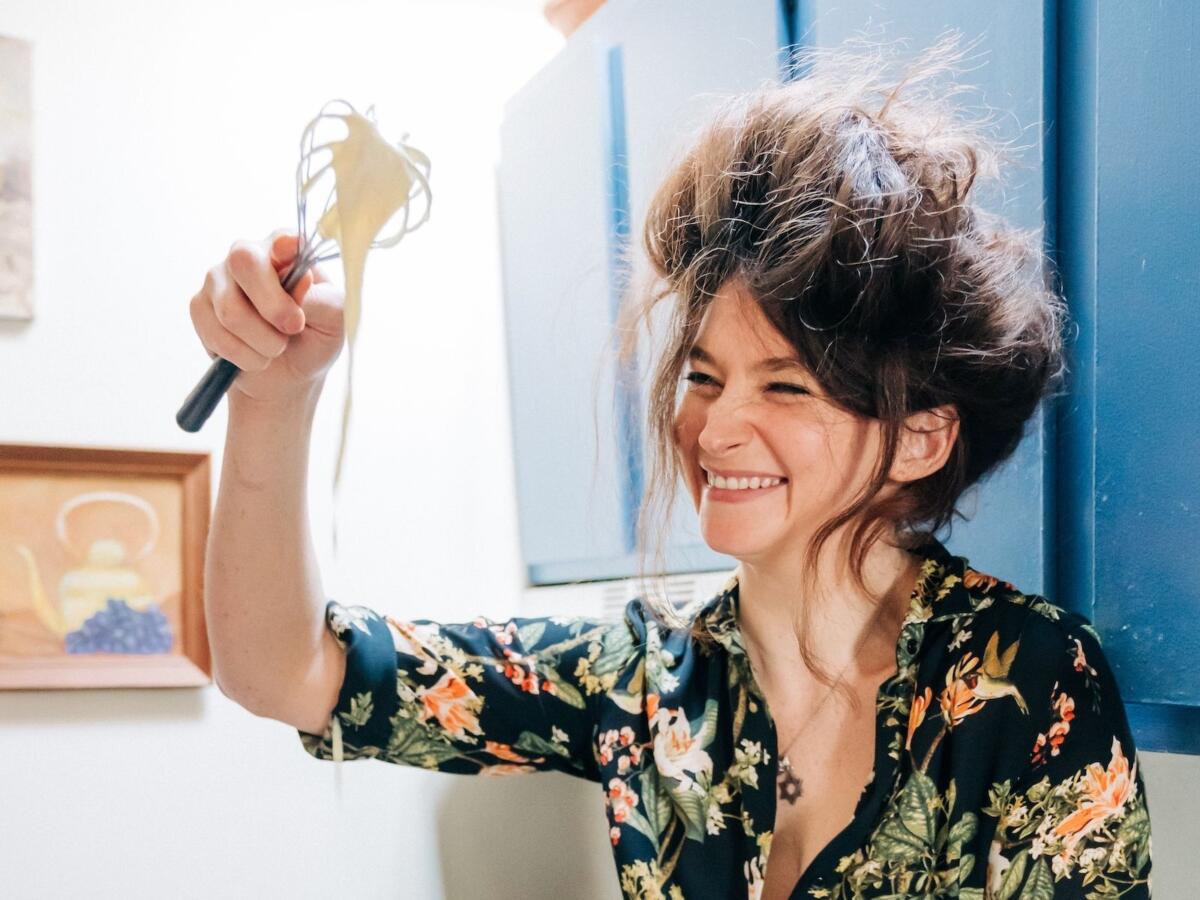
Her lemon poppy babka is one such way to give new life to a starter. But the recipe isn’t for those in a hurry to create a quick brunch dessert. “Sourdough takes much longer than conventional yeast, so I view it as a special project with maximum reward,” she muses. “The flavor and structure of the crumb in the dough is well worth the wait. There’s also lots of resting and downtime with sourdough, so you can build a weekend around it, which is a kind of forced relaxation.”
I was forced to relax for four days while compiling the varied elements of the sourdough babka, which was sped along by a friend’s already living starter (you’ll add on another week or two of feedings if you’re birthing a starter from scratch). The sharp, citrusy filling makes for a gorgeous addition to any meal, and the sourdough offers an added dimension along with a lightness I haven’t found with classic yeasted recipes.
Schiff leaves me with one last piece of advice: “Don’t skimp on the filling,” she warns. “There’s a tendency to not want to overload the dough, but you really want to almost overload it. All the rolling and twisting creates so many layers and you want each bite to have swirls of chocolate, cinnamon, or what have you.”
While my house plants might be drooping and my cat whining, my starter is still alive and ready to use for a second loaf, this time overloaded with a dark chocolatey center.
